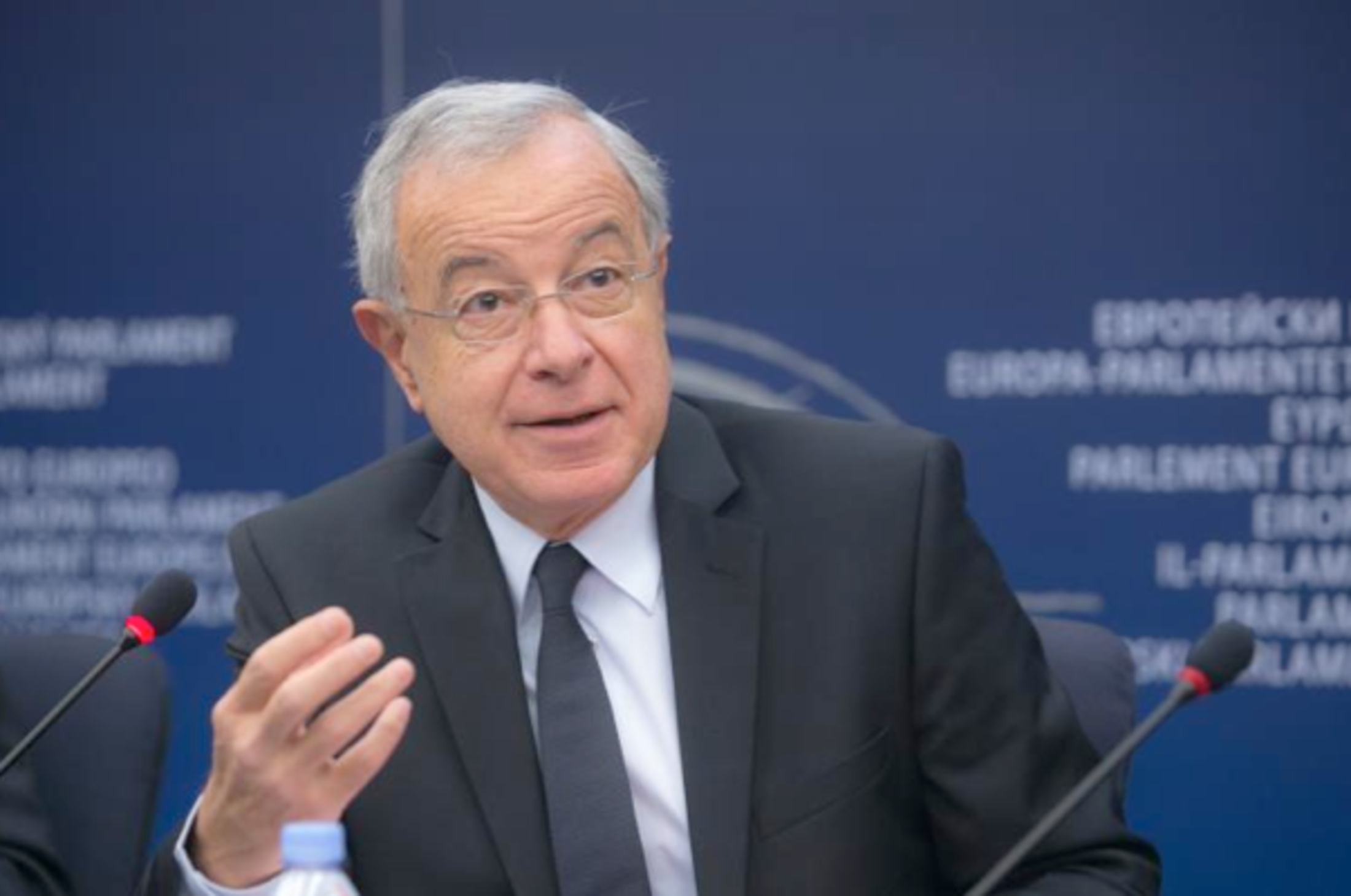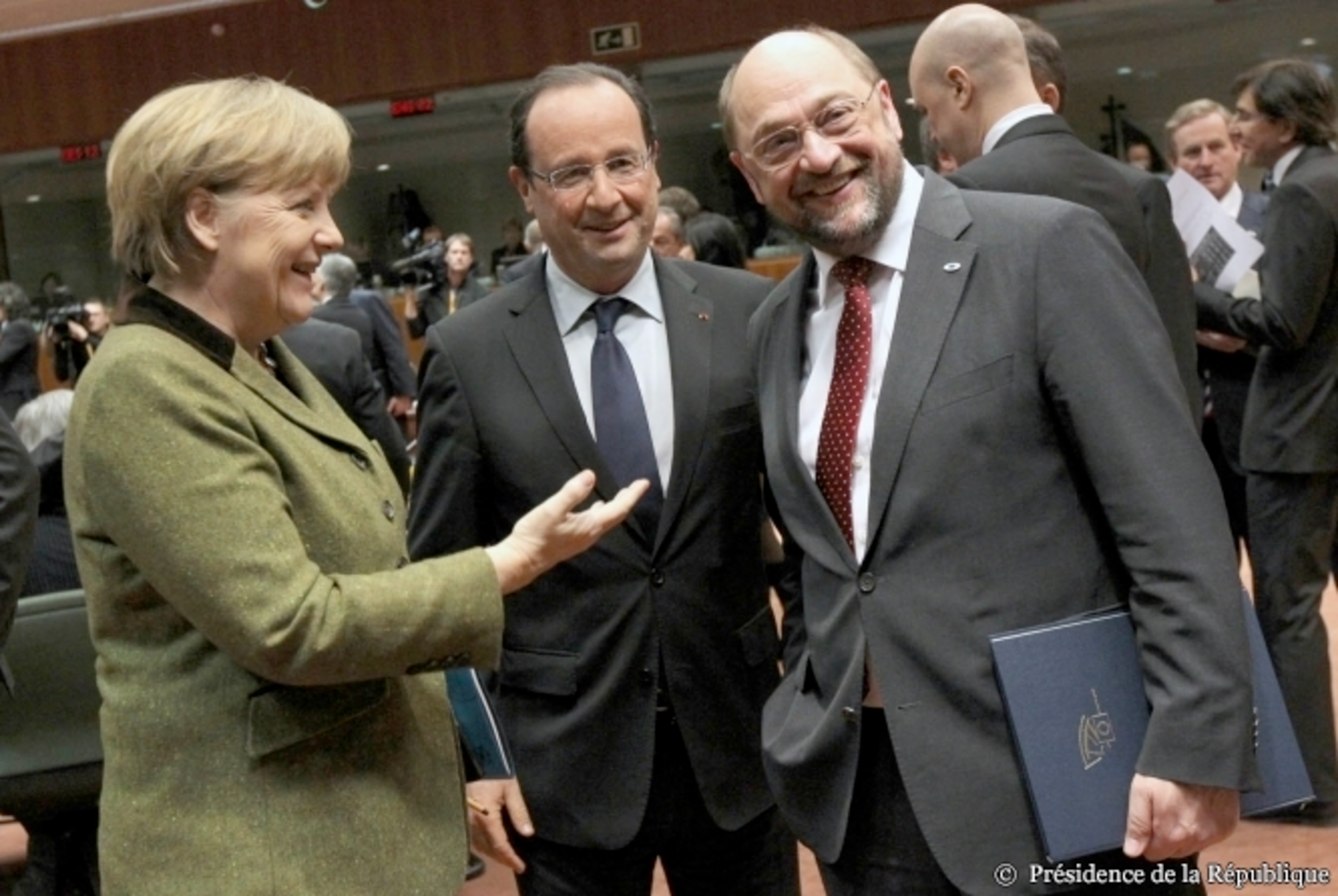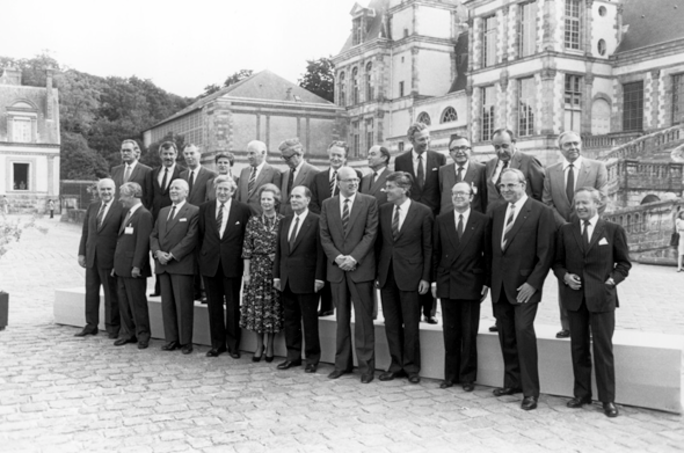From Mediapart's special correspondent in Brussels
A feeling of revenge is pervading the corridors of the European Parliament. Ever since the start of the financial crisis Euro MPs have had little say on the issue. They have nearly always been ignored by an all-powerful Council of Ministers where the duo of former French president Nicolas Sarkozy and current German chancellor Angela Merkel reigned supreme. However, after the Lisbon Treaty modified the role of the European Union's (EU) institutions, the European Parliament suddenly finds itself in the frontline on whether to approve or reject en bloc the EU budget. This budget was agreed in February by the heads of state and government of the 27 member states. It is the first time the Euro MPs have had the opportunity to reject a budget outright, and they say they intend to make the most of it.
A crucial moment comes at Strasbourg this Wednesday. Unless there is a last-minute amendment to their resolution, a large majority of the 754 MEPs are expected to reiterate their intention to “reject the agreement”. Their resolution will then set the framework for the negotiations that will begin with the Council of Ministers and the European Commission, which could last many months. Just over a year before the next European elections, this budgetary saga is set to be a test of authority for a parliament that many say is too often inaudible on major issues.
“It will be a key political moment for the parliament,” agrees Catherine Trautmann, who heads the bloc of French socialist MEPs at the parliament. French Green MEP Karima Delli argues that: “[This is] an historic opportunity for the parliament to free itself in relation to the Commission.” Yet another French MEP, UMP member Alain Lamassoure, who is president of the parliamentary budget committee, says that the “moment of truth is approaching” at a time when no one from the Council of Ministers seems to be able to draw the lessons from three years of crisis and “defend a stronger and more united Europe”.

Enlargement : Illustration 1

After the February summit in Brussels the four main political groupings in the European Parliament signed a common letter rejecting the agreement. They repeated their message at a stormy meeting attended by Commission president José Manuel Barroso and Herman Van Rompuy, the titular head of the Council of Ministers. The mood seems to be intensifying, with a fifth political group the European United Left, to which France's radical-left alliance the Front de Gauche belongs, signing Wednesday's resolution.
The MEPs even seem ready to intervene against their own political camps back home. That is the case, for example, with the French socialists who, until now, have held firm with their government line. They want to reject the budget in its present form, even if President Hollande judged in February that it was the best possible compromise “given the context”. Catherine Trautmann accepts there are some differences with Paris. “I was disappointed by the overall outcome of the European Council [meeting] in February even if François Hollande did pull [British prime minister] David Cameron and Angela Merkel along. To my mind the resolution that we are defending in parliament does not contradict the positions adopted by François Hollande during the negotiations.”
So the possibility of a parliamentary veto, which would be a major snub for the heads of state and government, is now more likely than ever. “If President Van Rompuy wants to get 378 votes [editor's note, a parliamentary majority] I can tell you that he will have to work like a dog to get them, he had better be prepared for some sleepless nights,” says Alain Lamassoure. The UMP Euro MP makes no attempt to hide his “jubilation” at the turn of events, having warned for more than a year about the budgetary deadlock that was looming in Brussels.
To be approved, the agreement has to get an overall majority – 377 + 1. During a spectacular vote in October 2012, no fewer that 517 MEPs approved a report that accepted the need for a budget that was much more ambitious than the compromise agreed last month. It was one of the biggest majorities seen at the parliament since the last European elections.
But how will the main right-wing grouping ultimately vote?
It remains to be seen, though, if the majority of MEPs will resist external pressures, despite the vociferous positions adopted by the leaders of the various parliamentary blocs. The MEP for the French centrist party Modem Sylvie Goulard wonders: “The parliament is barking, but will it bite?” Having raised the stakes and achieved some face-saving compromises, will the parliament ultimately roll over? After all, those MEPs whose parties are in power back home have every interest in not rocking the boat if they want to be able to stand again for the next European elections in the spring of 2014. This explains why some MEPs are calling for a secret ballet to be organised.
Wednesday's vote will give a first indication of the strength of force within the various parliamentary groupings, and especially provide a clue about how many will defect. If the vote for the MEP's resolution attracts below 378 votes than it represents an outright failure. “If it is under 400 [votes for the resolution] then it wouldn't be good. That's what the Council [of Ministers] is waiting for, that we continue but divided...” says a European source close to the issue.
A great deal of attention will be focussed in particular on the approach of the European People's Party (EPP), the largest grouping in the European Parliament. If the group is led by figures who have, up to now, been firmly opposed to the budget agreement, such as French Euro MPs Joseph Daul and Alain Lamassoure, the silent majority is hesitating. The Polish conservative MEPs (there are 29 of them), for example, are considering their position. Poland is in fact one of the big winners of the February agreement, with the country receiving a 5% increase in so-called cohesion funds at a time when the overall level of these funds across the 27 member states is falling by 8%.
The Right in Spain (25 MEPs) is also sceptical. They baulk at the idea of creating more difficulties for the current Spanish prime minister Mariano Rajoy. Especially as the Spanish have obtained a third (about two billion euros) of the new funding aimed at tackling youth unemployment. Finally, many of the 42 German Christian Democrat MEPs, who belong to the EPP, consider that the current resolution goes too far in its criticism of the budget deal. Just months before the German federal elections scheduled for September, they have no intention of weakening the position of Chancellor Merkel.
“The CDU is worried by the word 'reject' in the opening of the resolution. That would mean rejecting an agreement on which the German chancellor has worked for months, and which she has personally defended. Let's say it raises an issue of courtesy,” says Alain Lamassoure diplomatically.

Enlargement : Illustration 2

The EPP is not the only group that is divided. Inside the liberal grouping the Alliance of Liberals and Democrats for Europe (ADLE) led by former Belgian premier Guy Verhofstadt, the influence of MEPs from Germany and Britain, two of the countries keenest on budget cuts, will lead to some concessions. In late February Verhofstadt sought to square the circle over the budget, a very different approach from the robust criticism he had previously levelled in the immediate aftermath of the budget agreement. For example, he is not opposed to the overall budget figure agreed by the states even if, with a reduction of 3.3%, it is the first time it has ever been cut.
Indeed, one of the weaknesses of the current resolution to be voted on this Wednesday is that it contains no reference to precise figures. “I regret that no figure is spelled out in the wording, even though this is a decisive issue,” says Karima Delli. The Greens have, however obtained a clear demand for “substantial increases” for research and development, even if there are no precise figures attached to it.
'Even the Soviet Union didn't have a seven year budget'
Among the priorities that will feature in the negotiations to come, MEPs want to see a a more “flexible” budget, meaning that funds can be switched from one spending heading to another, depending on the priorities for that year. This is not currently possible. They also want guarantees over new standalone funds, as customs duties are already, that can be added to the European budget without asking member states each year to pay their contribution. In this context many in Brussels have their eyes on part of the revenue from a future tax on financial transactions.
Another demand from MEPs, and one that could potentially be explosive, is that member states pay their unpaid bills from the previous financial cycle. For the year 2012 alone this comes to around 16 billion euros. It is a sensitive subject at a time of austerity. If the member states give way on this then France, for example, would have to pay an extra two billion euros to Brussels without delay.
Finally, many MEPs point to the “absurdity” of the timing of the decision on the seven-year budget with EU elections just around the corner. “Do you think it's serious, from a political point of view, that at the end of our mandate we decide on a European budget for seven years, that's to say a budget that is even longer than the mandate of the Euro MPs [editors' note, five years] who will be elected next year, and with a new Commission?” asks Alain Lamassoure. For socialist MEP Catherine Trautmann the timetable also poses a “bit of a problem” as it removes from next year’s elections what is a key issue, namely the setting of the EU budget.
“Even the Soviet Union, which has now disappeared, did not have a budget for seven years but only for five,” says Guy Verhofstadt with irony. On Wednesday MEPs will propose the adoption of a “revision clause” that would allow the budget debate to be reopened, for example once the new Commission is in place by the start of 2015. “In that context we could re-debate the [budget] figures,” says Trautmann. Once again the debate with the Council of Ministers on this is set to be tough.
“We are faced with a major political problem and I can't tell you how it will end,” says Alain Lamassoure. “We will be obliged to ask fundamental questions about the European budget and to have debates that the European Council [editor’s note, Council of Ministers] doesn’t want to have and which the EU has not really had since the Fontainebleau Summit in 1984,” says Alain Lamassoure.

Do the MEPs once again have to dare to drag out the negotiations so that such a debate can take place? Chancellor Merkel has already urged the parliament to find an agreement as soon as possible, and Commission president José Manuel Barroso is more or less following the same line. “We must have an agreement between now and June,” says Patrizio Fiorilli, Commission spokesman on budget issues. “For the Commission the priority is that at the start of 2014 the towns and regions of Europe, researchers, small and medium-sized businesses, non-governmental organisations and students have access to European funding. To do this you have to allow for months of work to prepare all the programmes, which is why it's necessary to have an overall agreement in the next three months.”
The wrestling match is under way. It is hard to say, at this point, who will win.
---------------------------------------
English version by Michael Streeter


